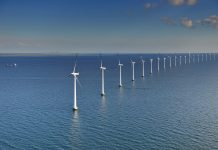ENTRUST is a H2020 project exploring human behaviour towards energy-related activities. University College Cork’s Niall Dunphy explains
Energy has traditionally, and indeed it continues to be, framed almost exclusively as a commodity. From this perspective, citizens mainly occupy the role of passive – or occasionally as so-called ‘active’ – consumers whose only legitimate interaction with the energy system occurs through their purchasing choices and consumption practices. Other societal and environmental considerations are more often suppressed or superseded by this dominating paradigm. This ignores the fact that consumption represents only one component of the human interaction with the energy system. Such a limited view has led to poor policy decisions that have resulted in, for example, bottom-up resistance to energy infrastructure and the design of ineffective initiatives aimed at changing energy behaviour and practices.
Despite this, the energy system is currently undergoing a rapid transformation, reinforcing the need for a greater understanding of the human dimensions of energy. The EU has set targets to reduce greenhouse gas emissions by at least 40% from 1990 levels, and to have a minimum of 27% of energy produced by renewables, as well as a 27% improvement in energy efficiency. In order to achieve this transition to a low carbon future that is both efficient and effective, we need to re-evaluate the way in which energy is viewed at a personal and wider societal level.
Calls to move beyond the narrow view of energy as a commodity are growing apace and many policy makers are beginning to recognise the need to integrate the public as much as possible as active stakeholders in the energy system. The role citizens often play in strategic, energy-related infrastructural projects is usually consigned to passive participation with ‘community engagement’ on the part of those leading the project being rather perfunctory and non-committal. Community consultations invariably comprise of information meetings with developers where local people are told how the developers wish to proceed. The ENTRUST project is exploring how attitudes on participation can move to a more inclusive space where all stakeholders in the energy system can contribute to co-developing the transition to low-carbon configurations.
Gathering data
ENTRUST is meeting this challenge by adopting a number of key theories to inform our conceptual framework, most notably the idea of energy citizenship. The project is developing an in-depth understanding of people’s awareness and perceptions of the energy system, their attitudes towards various energy technologies, and their energy consumption behaviours and practices. This analysis examines how socio-demographic factors (especially gender, age and socio- economic privilege) impact and shape these attitudes and practices. Building on this understanding, the project also engages the public in the current energy transition and uses consensus decision-making tools – emerging from deliberative democracy theory – for creating public interest in European energy policy and innovation. The research team are currently implementing a suite of citizen jury-style engagements across 6 communities, to co-develop with participants their vision of the sustainable energy and low carbon future.
ENTRUST’s multidisciplinary and interdisciplinary team comes from a broad range of disciplines – including engineering, sociology, political science, psychology, gender theory, and human geography – and are integral to the effective exploration of the sociodemographic factors at play. The project has made good progress to date and has already seen the completion of numerous analyses on policy and regulation, energy technologies, and market-based policy tools. Reporting on the multidisciplinary team’s work on stakeholder engagement, deliberative participatory processes and the intersectional, socio-demographic analyses is now also nearing completion.
The ENTRUST team have placed particular effort on understanding the complex, multifaceted roles gender, age and socioeconomic status have in shaping individual identity and the associated collective impacts on our energy infrastructures. These influencing factors can be both positive and negative and only by understanding these drivers can we begin to fully understand our collective responses to wider energy transition initiatives. Working with the 6 communities in the project, the ENTRUST team is striving to present new and emerging knowledge within a practical framework that can improve stakeholder understanding and, ultimately, overcome the shortcomings of previous phases of the energy transition by helping to give local people a voice in the energy discourse.
Encouraging greater public participation is a perennial issue for policy makers. A quite novel departure being taken by the ENTRUST team is the use of ‘citizen juries’ within the 6 communities it is working with. A citizen jury is a type of deliberative process designed to encourage people to identify and explore the issues that are of particular importance to them, within the wider framework of the energy system. Once this step has been completed participants then proceed to deliberate and posit potential solutions that they see as fair and just, both to them and to society more generally. Deliberative democracy or discursive democracy tools have been applied in numerous countries including Canada and Ireland and are increasingly seen as giving citizens a greater opportunity to contribute to the democratic process and, subsequently, lends greater legitimacy to decision makers over more traditional ballot-focused approaches. Follow us on twitter for updates of this work.
This project has received funding from the European Union’s Horizon 2020 Programme for Research and Innovation under Grant Agreement no 657998.
Project Coordinator:
Niall Dunphy
Director
Cleaner Production Promotion Unit
University College Cork
Ireland
Tel: +353 21 4902521
n.dunphy@ucc.ie
Please note: this is a commercial profile











